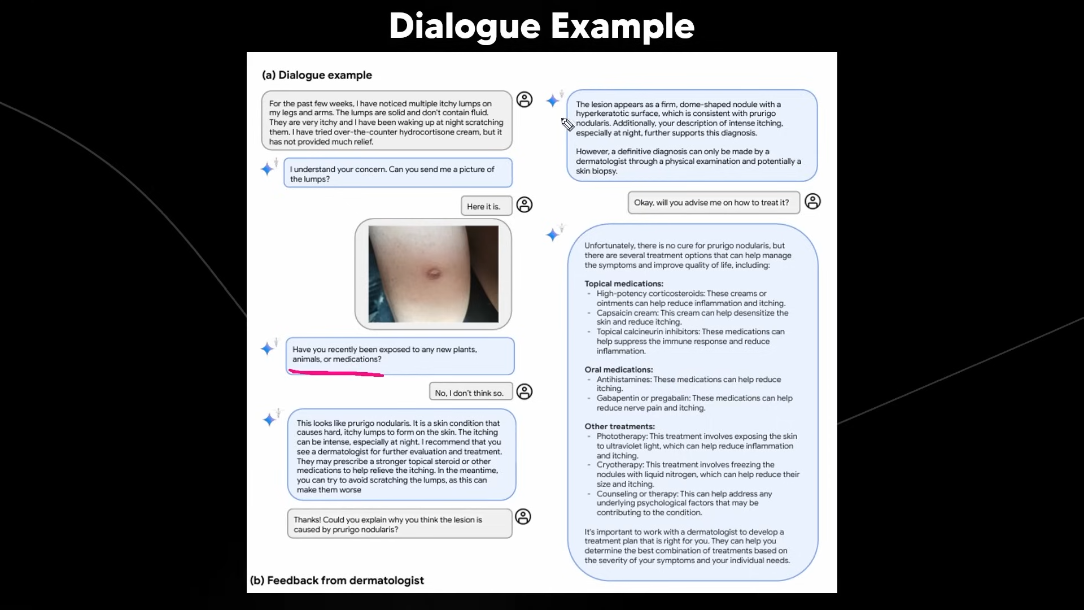Google's Medical AI Beats GPT Models & Even Impresses Doctors With Its Clinical Reasoning
The AI landscape is evolving faster than we expected.
Google has just published an open accces paper detailing their new AI for use in the healthcare sector
Med-Gemini, currently in the research phase, builds upon Google's Gemini AI model and sets new benchmarks according to 14 widely recognised industry standards, as reported by Google researchers.
This innovative model, part of the Med-Gemini family of large multimodal models (LMMs), offers various specialised applications. Unlike large language models, which may exhibit suboptimal clinical reasoning and struggle with issues like hallucinations and bias, Med-Gemini provides more accurate, reliable, and nuanced results for complex clinical reasoning tasks.
Google notes that Med-Gemini outperforms competitors, including GPT-4, in delivering factual and comprehensive results.
Google's Med-Gemini was put to the test and it impressed medical practitioners
In one instance, a patient shared an image of a skin lesion with Med-Gemini, seeking assistance with diagnosis. Med-Gemini engaged the patient in a series of questions before offering a potential diagnosis and suggesting courses of treatment.
Upon review by a dermatologist, Med-Gemini's diagnostic accuracy and treatment recommendations were praised. The dermatologist lauded the model's ability to accurately diagnose prurigo nodularis, a relatively uncommon condition, based on minimal data — only one photo and a brief description. Furthermore, the dermatologist appreciated the comprehensive treatment options provided by Med-Gemini.
However, the dermatologist also noted areas for improvement. They suggested that the model should have requested additional photos for a more thorough assessment and offered a broader range of potential diagnoses. Additionally, the dermatologist highlighted the importance of informing the patient that while there is no cure for the disease, treatment can effectively manage symptoms.
While the AI proves to be impressive, Google remains reserved in using the AI for real world diagnostics
Google emphasises the need for further fine-tuning and specialisation of its models before considering their application in healthcare. The current state of these models does not warrant their use in real-world diagnostics without additional research and development.
Furthermore, Google expresses its commitment to integrating responsible AI principles into the development process of these models. This entails ensuring that ethical considerations, patient safety, and data privacy are carefully addressed throughout the development and deployment phases.
"An important focal area for future exploration is the integration of the responsible AI principles throughout the model development process, including, but not limited to, the principles of fairness, privacy, equity, transparency and accountability," said Google
The information provided is for educational and communication purposes only and it should not be construed as personal medical advice. Information published in this article is not intended to replace, supplant or augment a consultation with a health professional regarding the reader’s own medical care.

